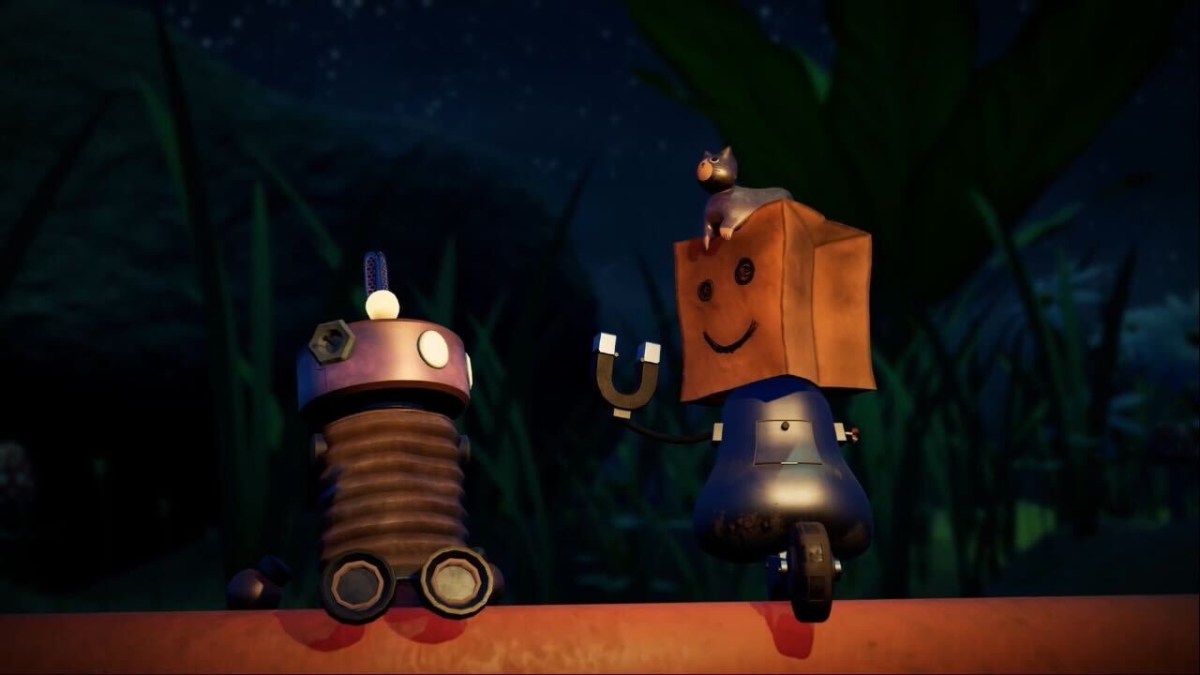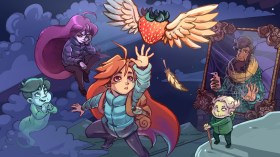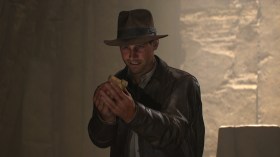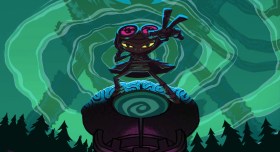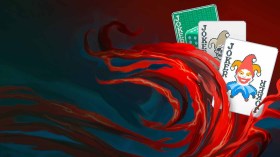Going through life alone is hard, but with a friend by your side, it can be much brighter. This message is at the heart of Misc. A Tiny Tale, a new Australian-made platformer that explores topics of friendship and love as you wander an enormous human world full of mystery. With whimsical, sweet storytelling, and cutesy challenges hiding in Pikmin/Chibi-Robo-inspired backdrops, this is a experience that lands with a wonderful impact.
What’s most striking about Misc. A Tiny Tale is how well it wears its inspiration on its sleeve. It’s clearly inspired by other gaming platformers. There even appears to be some Gex in the way it introduces its challenges. But through its childlike lens, it evokes a real sense of wonder and imagination, making every step you take feel novel.
The premise here, like the game’s overall design, is relatively simple, in a way that makes it entirely approachable for folks of all ages. You are a tiny robot named Buddy who awakens after a mysterious event – an explosion that causes many golden cogs (as well as garbage) to rain down from the sky. You are only a very small robot in a big human world, but you do what you can to clean up this garbage, and collect every single golden cog, to restore the world to the way it was.
Along the way, you’ll meet all sorts of strange and lovely folk, all of whom have their own ideas about what the cogs represent, and how they might be used. Sometimes, you’ll get lucky and find cogs strewn across the earth, hiding in little patches of grass, or down cavities. Other times, you’ll need to barter with tiny beings, providing them with alternative items to dazzle their eyes, or solve their problems.
Misc. A Tiny Tale is buoyed by a child-like lens
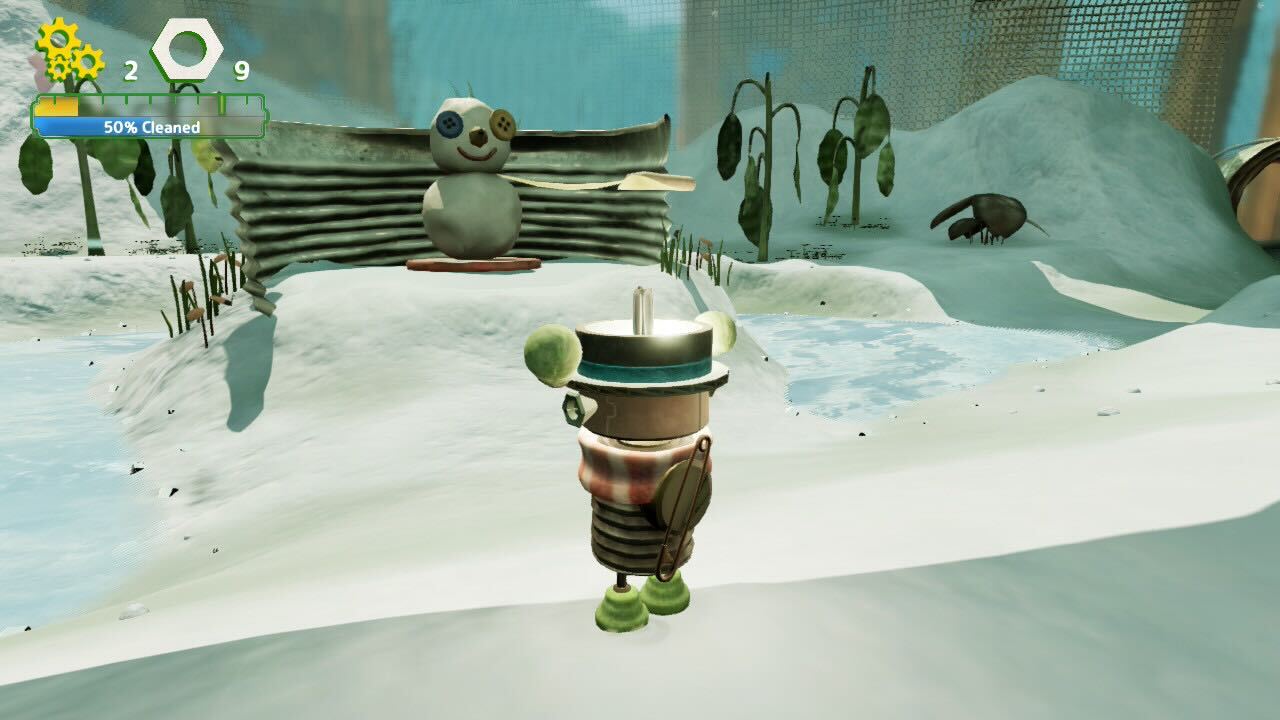
A cook might be using a golden cog to create a soup. So you’ll need to reason with him, and provide a pepper or other ingredients in its place. One tiny robot might be using the cog to gaze at himself, but wouldn’t a mirror be better?
Misc. A Tiny Tale encourages you to search far and wide for solutions, with each of its many tiny worlds containing all sorts of little collectibles that prove to be very useful. On tiny, wobbly legs (that feel a bit too floaty at times) you’ll make your way through various puzzles, saving the world one garbage-collection at a time.
Read: Tamagotchi Plaza review: stay a while, stay forever
You’ll need a certain number of cogs to get past each level, as well as enough garbage and/or hex nuts to purchase items for solving particular puzzles. You don’t need to collect everything in a stage, but it’s a lovely exercise for completionists, and is certainly very doable. (There’s even a helpful recycling bin to point you in the right direction, if you get stuck.)
Being in the game’s world is absolutely lovely in any case, with its art direction and style bringing to mind 1990s edutainment platformer, Bugdom. It’s a joy to be small in a very big world, and Misc. A Tiny Tale focusses on a freedom of discovery that lets you travel with open eyes, and without fear of larger threats. I mention this specifically because it does also evoke survival platformer Grounded in some ways, but without a focus on bug battles or terror that might otherwise frighten children. Rather than your smallness being a complication, it’s your strength.
Being small is a major strength
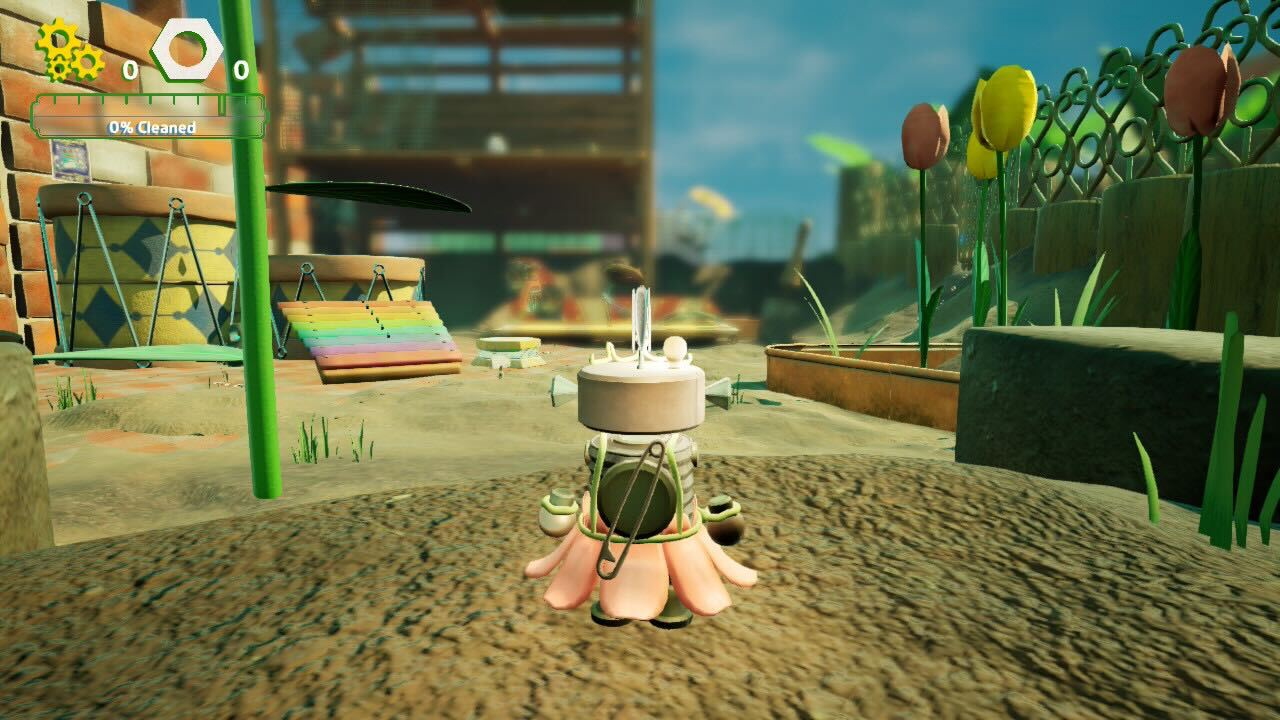
You can wander from ground height, and marvel at the plants that sweep overhead, your size only being a challenge for upwards traversal. With a bounty of simple beauty across its many themed stages, from flower-filled levels to ice-capped mountains and beyond, it’s all about embracing a sense of wonder, and figuring out how your tiny body can get to far-off places, with a little ingenuity and courage.
Misc. A Tiny Tale does look a bit rough and ready around the edges – it’s a game designed by a very small team, after all – but it does make the most of its talents, with a diversity of landscapes in each world, and clever use of real world items to create its sense of joyful exploration.
What might be a lonely flower pot in the real world is transformed into a platform to reach new heights here. A garden rake serves as a ladder to brighter realms. A tiny little mushroom may even serve as a bouncy platform. This game reimagines mundanity, creating a sandbox that is both familiar and alien by its size.
For me personally, its opening levels immediately brought to mind a childhood of watching Oakie Doke reruns on the ABC. It has the same sense of bright-eyed storytelling in quiet, touching cutscenes, and makes use of real-world items in similar ways. And with gameplay that feels simple and accessible, it would make for an equally lovely experience for younger kids.
That said, there’s ample challenges that are also encouraging as an adult. Many puzzles are fairly obvious by design, but if you’re going for completion, there’s also special platformer levels and other, more winding puzzles to tackle. I consider myself a very experienced game player, and I found myself having to walk away from some of the harder traversal challenges.
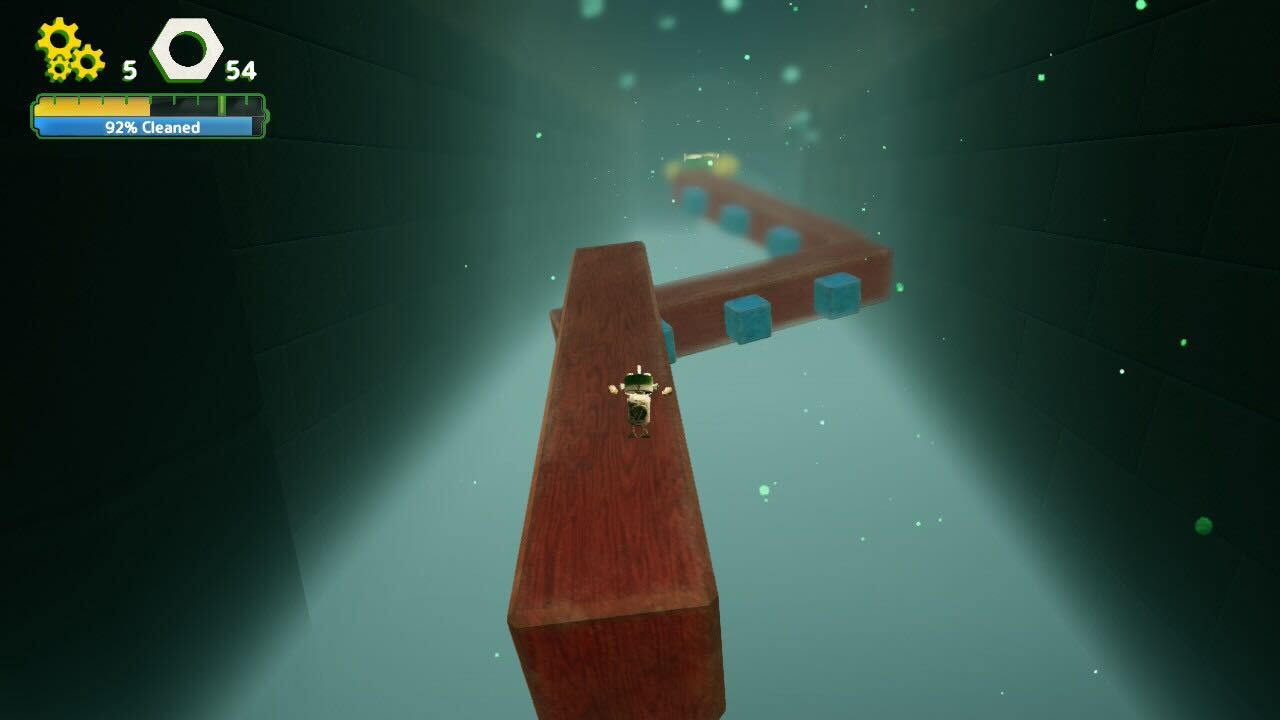
It’s tough to make a game that appeals to all sides, but Misc. A Tiny Tale just about manages it, with its pure sense of heart and good intentions, as well as its mix of gameplay mechanics.
Its most ambitious ideas are somewhat held back by a limited art style and fairly floaty traversal, but the longer you travel in this game, the more its lack of polish becomes endearing, rather than frustrating. This is a scrappy little game by design, with a very important message about belonging, and how one tiny robot can make a difference, even in a towering world.
It remains compelling, despite its flaws, thanks to a steady, beating heart, and a joyful design that makes you want to forge onwards, towards a brighter future for all your tiny robot friends.
Three-and-a-half stars: ★★★½
Misc. A Tiny Tale
Platform(s): Nintendo Switch, Steam
Developer: Tinyware Games
Publisher: Tinyware Games
Release Date: 22 July 2025
A Nintendo Switch copy of Misc. A Tiny Tale was provided by the publisher for the purposes of this review.
Discover film, TV and games reviews on ScreenHub…
Developer
Tinyware Games
Publisher:
Tinyware Games
Release Date:
22 July 2025
